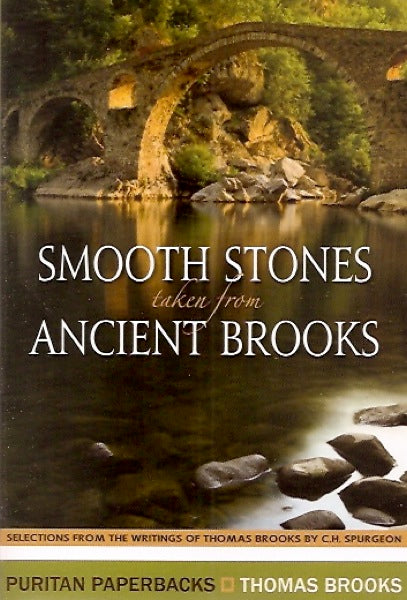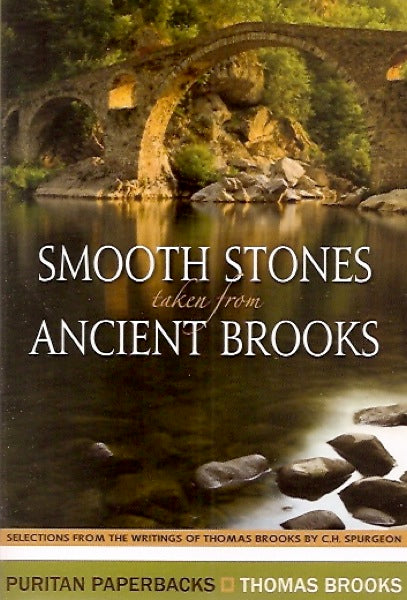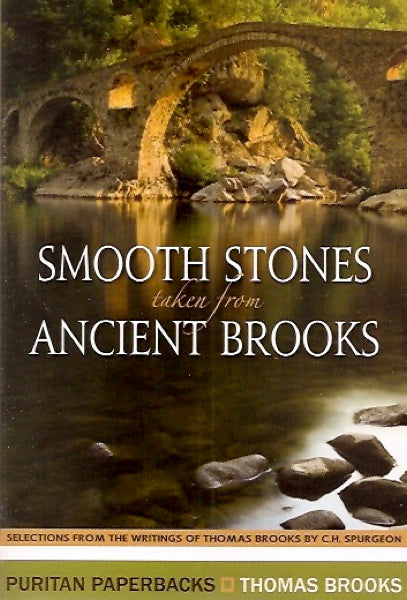Smooth Stones Taken from Ancient Brooks: Selections from Thomas Brooks by C.H. Spurgeon (Puritan Paperbacks)
'As a writer, Brooks scatters stars with both his hands: he hath dust of gold; in his storehouse are all manner of precious stones.’ So wrote C.H. Spurgeon in his Preface to this book. He counted Thomas Brooks among his favourite Puritan authors, and it is not hard to see why. Brooks’ popularity lies both in his subjects – practical truths, central to the Christian life – and in the manner of his presentation. He is ever direct, urgent, fervent, full of Scripture, and able to choose words which make his sentences stick in one’s mind.
This book is a collection of sentences, illustrations, and quaint sayings from this renowned Puritan. Gathered by Spurgeon out of the 6 volume set of Brooks’s Works, it remains an excellent introduction to both the man and his writings.
Spurgeon continues, ‘Reader, thou hast here presented to thee, in a cheap and readable form, the choice sayings of one of the King’s mighties. The great divine who wrote these precious sentences was of the race of the giants. He was head and shoulders above all the people, not in his stature (like Saul), but in mind, and soul, and grace. Treasure these gems, and adorn thyself with them, by putting them into the golden setting of holy practice, which is the end the writer always aimed at. Use these “smooth stones” as David of old, and may the Lord direct them to the very forehead of thy sins, for this is the author’s main design! One of these pithy extracts may assist our meditations for a whole day, and may open up some sweet passage of Scripture to our understandings, and perhaps some brief sentence may stick in the sinner’s conscience, like an arrow from the bow of God. So prays the servant of Christ and his church.’
-
Cover Type
-
ISBN
-
Page Count
-
Weight
-
Publisher
-
Publication Date




